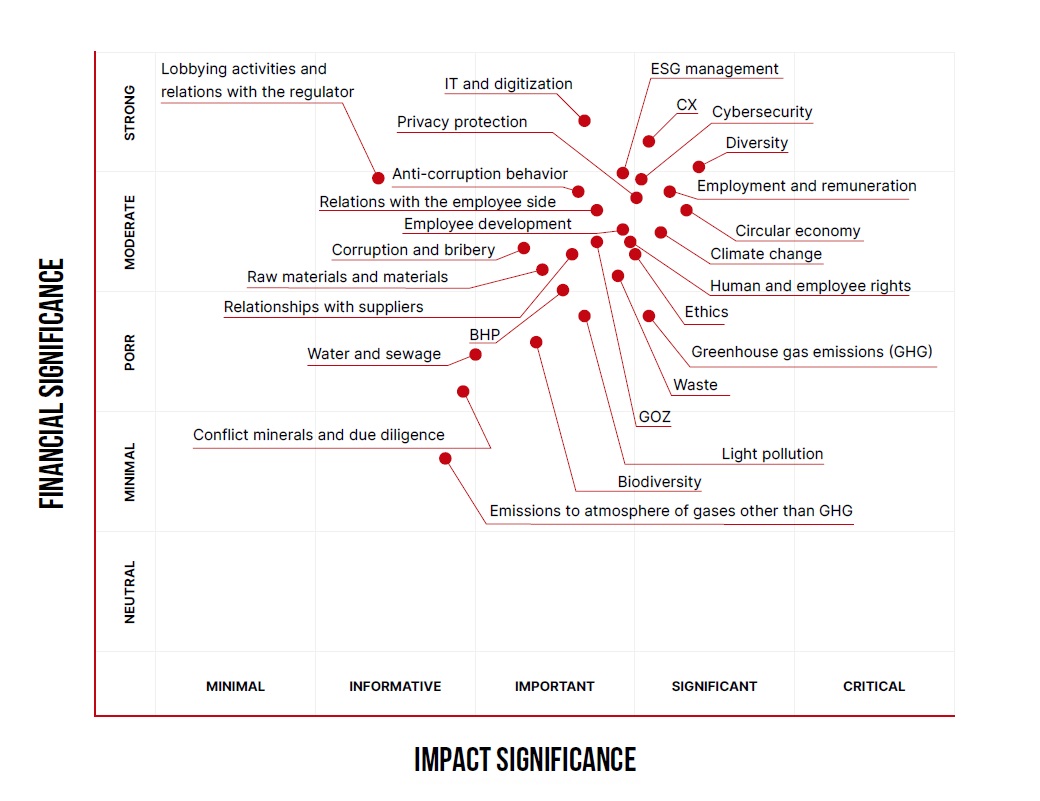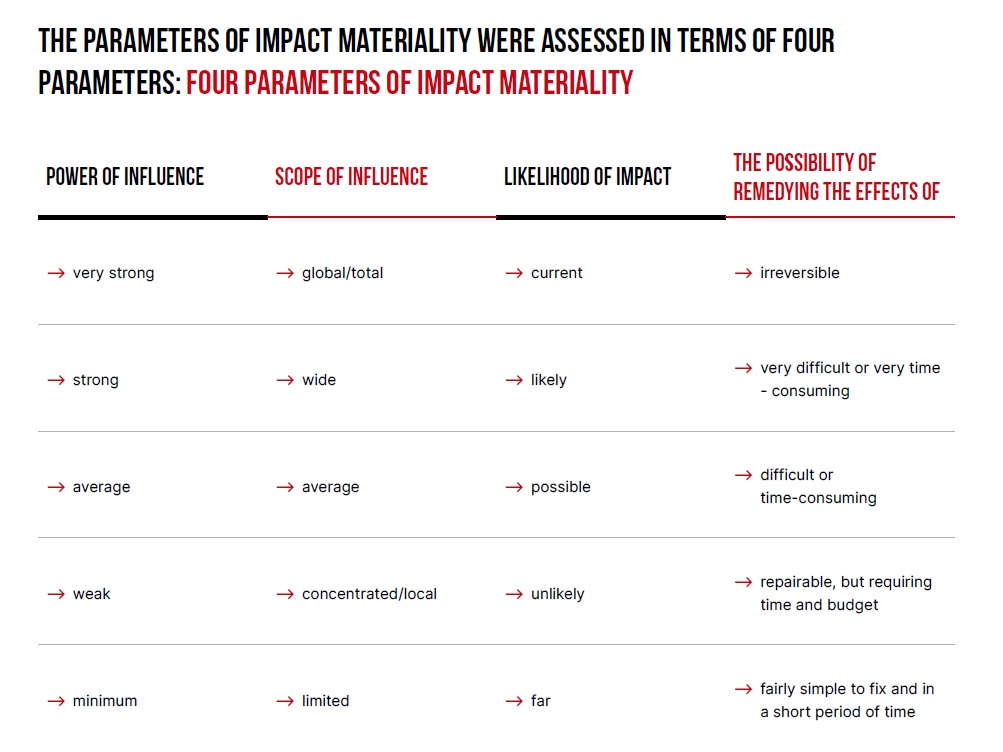
When defining material ESG issues for the Agora Group for 2023-2027 in the fourth quarter of 2021, a materiality survey process was conducted for the first time, as required by the EU CSRD.
In October 2023, through a process conducted with the organization's management, the survey was updated and fully aligned with the requirements imposed by the EU ESRS reporting indicator. Originally, the survey was conducted using an extended questionnaire method for different groups of company stakeholders. ESG issues were examined in terms of five parameters in two perspectives (double materiality principle): four impact parameters - the strength of impact, the extent of impact, the likelihood of impact and the possibility of remedying the impact, and one parameter of financial materiality, i.e. the impact of the ESG issue on the development, performance and business situation of the Agora Group. In addition, a study of the materiality of ESG issues from the perspective of the company's external stakeholders (financial institutions, representatives of Agora S.A.'s shareholders and external experts in the ESG area) was conducted, with whom in-depth and structured interviews were also conducted
The survey included financial materiality, i.e. analyzed the impact and risk that Agora Group has on the environment and society, and impact materiality, i.e. analyzed the impact that Agora has on environmental and social issues. The results of the various stages of the study were presented to representatives of the Agora Group's Board of Directors and senior management during a validation workshop, and were subsequently consolidated. The study considered the following sources of information, among others:
Analysis of source data
- Comprehensive survey conducted on a group of 25 representatives of the Board of Directors and senior.
- Company and group executives and a group of 4 external experts.
- Structured interviews with 7 representatives of external stakeholders from the Company's environment.
- Comparative analysis of 16 companies in the industry.
Matrix analysis of the results
The study included components of analysis of risks related to a particular area, as well as multidimensional impact within the areas mentioned. The materiality study was accompanied by the process of developing the organization's value chain, and the analyzed impacts and risks were then related to the processes carried out in that area.

The strength of the Agora Group's influence (direct or indirect) on an issue
- The strength of the impact determines how serious the effects of the impact can be. In the case of environmental issues, it is about environmental damage. For social issues, it is about the negative effects on individuals or groups of individuals.
- The scope of the impact determines how widely the effects of the impact can reach. In the case of environmental issues, it will be a geographic area. For social issues, the scope can be understood as the number or percentage of people affected.
- Likelihood of impact determines whether the impact is currently occurring or is likely to occur in the future.
- Remediability determines whether it is possible to remediate the impact of the Agora Group's impact on an issue, and if so, how complicated, time-consuming or resource-intensive it is.
Financial materiality in relation to the issues studied was assessed on the following scales:
While the three parameters of impact materiality examined how the Agora Group directly or indirectly influences the issue in question, in this case it examined how the issue affects today and may in the future affect the operations of Agora's business segments. Among other things, this impact may relate to the current or future value of the company's assets or liabilities (e.g., to an extent that is not recorded in the financial statements).
It may also concern how financial flows will develop; whether the issue will cause the company to record greater or lesser positive or negative financial flows in the future. Finally, it may concern the types of capital that the company uses, but which are not recorded in financial statements (e.g., natural, human, intellectual, social or relational capital).
ESG issues for which impact materiality or financial materiality reached the level of important or higher were considered significant. The survey and interviews with external stakeholders confirmed the overall results of the materiality assessment and brought additional insight into some ESG topics.
In turn, the results of the materiality survey were taken into account in the process of developing the Agora Group's ESG Strategy 2023-2027, which is an integral part of the Agora Group's strategic directions for 2023-2026.




























